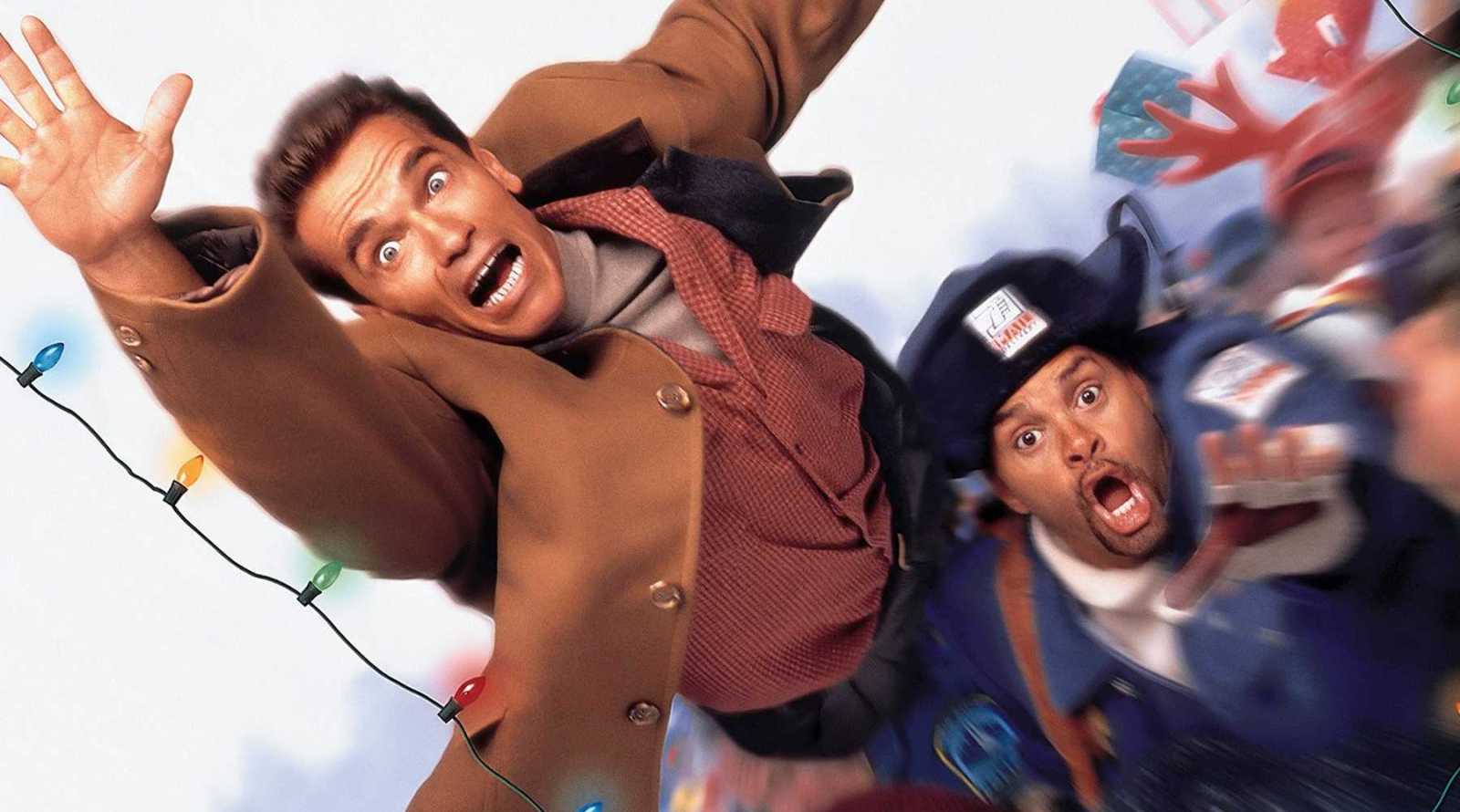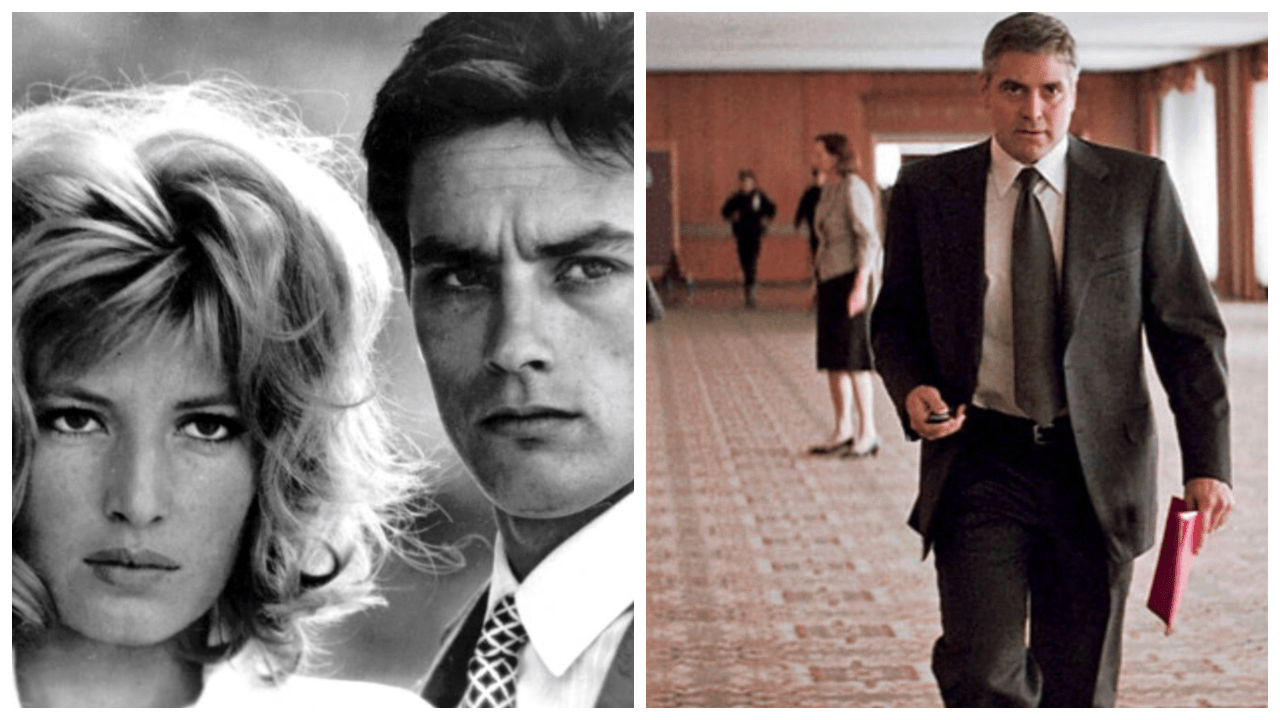For director Brian Levant, Jingle All the Way didn’t always signal the same warm nostalgia as it does for millennials who’ve always loved his holiday action-comedy. In fact, he admits with a laugh, the 1996 film ruined his career.
“Everyone involved poured their heart and soul into it, and then it didn’t find favor with the audience until years later,” says Levant, who now teaches film and writes about toy collecting. “It’s been surprising, wonderful, and truly redeeming that it’s become a Christmas classic—it started out just being a Christmas dud.”
After enduring 9/11, two wars, two recessions, two Paul brothers, and, recently, a relentless global pandemic, 30- and 40-somethings are transported back to a carefree era when watching Jingle All the Way, one that predates social media breaking our brains and a gameshow host president shattering political sanity. The Arnold Schwarzenegger vehicle is over-the-top slapstick, often slapdash, gleefully commercialist, sometimes cruel, always energetic, and reliably entertaining. It’s a big, dumb, fun time-capsule postcard from the Twin Cities, where it was shot over five weeks in early ’96.
To commemorate Jingle All the Way’s 25th anniversary, Racket presents the following locally angled oral history of how the most expensive film ever created in Minnesota came, flopped, and, eventually, was accepted into the cherished Christmas movie canon.
Conceiving Jingle
Levant and producer Christopher Columbus both possessed the family-flick Midas touch in the early ’90s. Levant was riding high off 1992’s Beethoven ($140 million) and 1994’s live-action The Flintstones ($340 million). Columbus, who remains a Hollywood power player today, had just directed 1990’s Home Alone ($477 million) and 1993’s Mrs. Doubtfire ($441 million). Together, they fast-tracked a script from an unknown screenwriter, assembled an all-star cast, and set their sights on the Twin Cities.
Randy Kornfield, writer: It’s based on my experience tracking down Power Rangers for my first-born son, which was a craze back in that day. There were lines, people were going crazy with rumors—“The Red Ranger is down at Toys “R” Us, they’ve just got one box!” I was writing at the time, and having little to no successes. I pitched it to Nickelodeon Movies, which was just getting started, and they passed. So I just decided to write the spec script. Pitching is very hard unless you’re an amazing salesperson, and being a relative unknown I thought if I got lucky and sold it, I’d make more money with a script in-hand. It was a lottery kinda win. When Chris Columbus got ahold of it, his attachment made all the difference—and they bought it not knowing who I was at the time, because I’d used a pseudonym.
Brian Levant, director: I was sent the script in February of 1996. I flew up to San Francisco, met with Chris Columbus, and we had a great meeting, negotiated a very nice deal, and soon after we started scouting in Minneapolis. Phil Hartman had come in originally to read for Sinbad’s role. It wasn't right, but I said, “Ya know, we got another part I think would be really great for you.” He just picked it up, dug in, and immediately the unctuousness with the women, the smarminess started pouring out and we knew nobody else could do this.
Originally, Fox thought they could get Danny DeVito and Arnold to do another film. DeVito wasn’t interested; maybe he had more sense than the rest of us. But that really set off who was gonna play Myron. I liked Sinbad because of his energy, and I loved that he was a big guy. Arnold beating up on a small guy? There’s no challenge. Sinbad was a great wit who did lots of improvising, and he kept Arnold on his toes.
I worked with Rita [Wilson] on Happy Days a couple times before she even met Tom [Hanks]. I was always very fond of her, and I wanted someone who was used to standing up to an A-list star. A lot of women who came into read… you could tell they were kind of intimidated. And Jake Lloyd had been in like one episode of ER and maybe something else, very small parts. What I liked about him was, he looked like he could have been Arnold’s son. He was very sweet and gave the film a lot of heart. Jim Belushi had been in Red Heat with Arnold and was an old friend of mine from Chicago. And Robert Conrad, who I grew up watching in Wild Wild West, he was fun; comedy was not his milieu, which helped. Martin Mull… I had his albums in high school! We put together a great group.
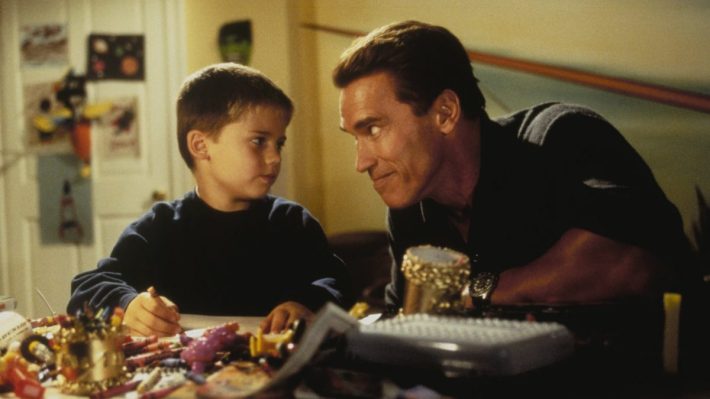
Hollywood, Minnesota
Created in 1983, the state-funded Minnesota Film & TV Board exists to promote filmmaking in Minnesota and to lure Hollywood filmmakers here. In the ’70s, eight movies were filmed in Minnesota (Ice Castles, The Heartbreak Kid), according to the board, with that number jumping to 18 by the ’80s (Purple Rain, Rachel River). The board enjoyed an absolute boomtime in the ’90s, attracting the teams behind Fargo, both Grumpy Old Mens, and The Mighty Ducks, to name just a few. By 1996, 38 films had wrapped production in Minnesota; Gov. Arne Carlson relished hobnobbing with the board at their regular “Ice Pack” parties in L.A. Movie production contributed $13 million annually to Minnesota from the early to mid ‘90s, the Star Tribune reported in ’97. By the ’00s, however, many tax incentives evaporated, so filmmakers opted for Hollywood carrot-danglers like Canada, Georgia, and New Mexico.
Randy Kornfield, writer: The original location was Minneapolis in the script. I was looking for a typical wintery midwest town. I actually had the Mall of America in mind as a setting, which they ended up using. I hadn’t ever been to Minneapolis, I winged it. It worked out.
Arne Carlson, former Minnesota governor: We had a very close relationship with the film board, and the history of the relationship is rather peculiar. When I came into office, we had this massive deficit, so I wanted to go through every line of the budget and veto everything. So, bingo, I put a red line right through them! Pete Gillette, who was Commissioner of Trade and Economic Development, really bent my ear and persuaded me, and we continued the appropriations. I loved the whole idea—I thought it was marvelous!
I think it’s a huge mistake that Minnesota is no longer a filming destination, and honestly I fault the media for not providing oversight on governors and administrations. They’re so focused on politics, not the actual substance. It means so much to the state, there’s no better place outside of Hollywood to shoot a film than Minnesota. I mean, having Jack Lemmon and Walter Matthau in the same state at the same time? That’s nirvana.
Randy Adamsick, former director of Minnesota Film & TV Board: I remember a lunch with Jack Lemmon, Walter Matthau, and Ann-Margret helped convince Arne about the importance of a good film board, and Arne really enjoyed the trips to L.A. I left because we couldn't really compete with the currency rates, tax breaks, and incentives for going to Canada. I was just in the right place at the right time. I have mixed feelings about it, because the incentives states offered got out of hand. But our Snowbate program was the first, though we’ve since been blown out of the water.
Andrew Peterson, location manager: In the ’90s, when there weren't production tax incentives, people went where it was right to shoot. A lot of films shot here in the summer, of course, and people fell in love with the towns. A couple executives bought homes here, and then comes the first winter and they’re like, “What was I thinking?” and leave.
Brian Levant, director: The city knocked themselves out to accommodate us, closing roads. Very helpful film commissions, and why not? You drop millions and millions of dollars in a place. Local crews, rentals, gas, office equipment, dry cleaning, hotel rooms, meals—it really adds up.
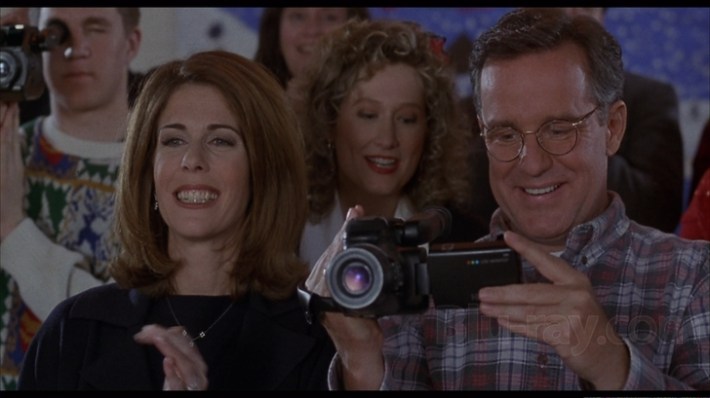
Location, Location, Location
Locations—shops in Linden Hills, homes in Edina—received lucrative per-day payments from the studio, allowing an elementary school in Falcon Heights to purchase brand-new computer equipment. At the time, Levant apologized for taking creative liberties by lumping Minneapolis and St. Paul together. Cops sport “Twin City Police” patches; when Arnold’s SUV breaks down on the Hennepin Avenue Bridge, it’s suggested he pushes it all the way to Mickey’s Diner in St. Paul—10 miles East.
Janet Zahn, Minnesota Film & TV Board, circa ’961: I'm working way too hard on this to think that they're not going to come. They're calling me for all kinds of stuff, information about squad cars and police uniforms. They've been on the [Nicollet] Mall and looking at residential property on Nicollet Island. They're also looking at sound stages and scouting [shopping] malls.
Anne Healy-Shapiro, location manager: I got a call from the film board saying [Jingle All the Way] didn’t wanna come here, that they were looking at Milwaukee and outside of Chicago. After our first day of scouting with them, I thought we’d never see ‘em again. Everybody was pushing for Chicago, but Arnold said, “No, I want to come to Minneapolis because I really love the Mall of America.”
Brian Levant, director: It would have been very easy to have gone to Minneapolis and shot five or six days—Mall of America, a couple of driving shots, some establishing shots. But Chris’s company was trying to establish themselves as producers of the highest level, meaning if your movie is set there, you shoot most of it there. Despite the cost. It was a joy to make it in Minneapolis.
Andrew Peterson, location manager: [The production team] wanted to shoot in May, so I said, “You’re not going to have snow.” And they were like, “Well, if anywhere is going to have snow in the U.S., it’ll be Minnesota… right?” No! I think one reason Minnesota stood out was the Mall of America. It’s a shopping movie. They fell in love with Edina and Linden Hills, the latter of which looks like it’s from a Nancy Meyers film. They never seemed to question an expense.
Twin Cities Takeover
For around five weeks, Jingle All the Way took over the Twin Cities. Locals, save for one grinchy lawyer below, seemed delighted by the Hollywood invasion. Jingle would prove to be Phil Hartman’s second-to-last credit, and his performance as Arnold’s smooth-talking, wife-lusting neighborhood foil is tremendous.
Fawn Bernhardt, waitress at Zumbro Cafe, circa ’962: For a service gal like myself, I'm not really rolling in the big bucks. I think I can handle any loss I have to take. I guess I could write Arnold asking for that $25 I was supposed to make that day. Right now, it's fun. We've been giggling and singing Christmas carols.
Patty West, regular at Zumbro Cafe, circa ’963: It's depressing. It's spring and it's snowing. When I came around the corner this morning and saw wreaths, I thought, “Oh, God, no!” Maybe a different time of year you'd think it's sweet, but not now. Who wants it to look like this? You know, they're going to make snow here. I hope they vacuum it all up when they're done.
Norm Coleman, mayor of St. Paul, circa ’964: When Keanu Reeves was here, a bus came in from Wisconsin, and Arnold is bigger than Keanu.
Laura Mylan, film liaison for the city of St. Paul, circa ’965: We hope people will be a little patient and try to have fun. We won't be closing any [parking] ramps or lots, but people may have to take alternate routes and go a block or two out of their usual way.
Unidentified lawyer, frustrated with traffic snarls in downtown St. Paul, circa ’966: [Schwarzenegger] thinks he's king, but he's just a movie star.
Sally Hedberg, former kindergartener at Falcon Heights Elementary: My paper candy cane artwork is in the first scene when Arnold is late to karate. He came to our school to meet our principal and community; it was really cute, literally the whole school waited outside in the field.
Diane McCary, Edina resident whose home was shot as Arnold's, circa ’967: Days began at 5:30 a.m. and they hopefully ended by 7 p.m., but usually it was later. Arnold loved our kitchen. He was interested because they're building a new house.
Arnold, on being instructed to smoke cigars outside the McCary home, circa ’968: I smoke in the garage because my wife doesn't allow cigars in the house.
Brian Levant, director: We tried to take advantage of unique things. The fact that we used Mickey’s Diner, for example, which has the best malts I’ve ever had in my life! I went like eight times. The Hennepin Bridge, Nicollet Island, the house in Edina… I still have the Christmas card from the family, the card was them and Arnold standing in front of the house. The State Theatre, the little toy stores, the one street [in Linden Hills] was bucolic, all we did was drop payphones. Then we went back to L.A. to shoot all our interiors, and the parade which was shot on Universal’s backlot. Originally they wanted to shoot it in Minneapolis, but you can’t shut down a street for five weeks to shoot something. So we were on the backlot in July with people dressed for Minneapolis in December. We had 1,400 extras, and I think 50 of ‘em fainted because they were overheated—it was 90-plus degrees.
Robert Conrad, who played Arnold’s cop foil, circa ’969: I go to Byerly's where I shop; I wear my disguise—a cap I wear backwards—and they go, “Hi Bob!” OK, so much for that disguise! [Minnesotans have been] pleasant, they've kind of taken me in. Know what I'm doing today? Hopping on my motorcycle, practicing for tomorrow night. I chase Arnold for the first time and catch him. I've been practicing because I'm a horse guy and a car guy, but I'm not a motorcycle person. Here's the funniest thing that happened to me… this is straight up. I'm practicing on the motorcycle. I have to put my costume on because I wanted to familiarize myself with the heavy jacket. I was right near that little yuppie area where they shot—real pretty—where they put all the snow? Anyway, I hit a stop sign. There's a woman, four kids. She said, “Officer.” I said, “Yes.” She said, “Can we go to the filming?” I said, “I don't see why not; you're a taxpayer, and they're on taxpayer property.” And she went, “Who's in the movie?” I said, “Arnold, Robert Conrad, and Sinbad. But talk to Robert Conrad. He's the nicest of the three.” She said, “Thank you, officer.” Then I roared away.
Andrew Peterson, location manager: A lot of times the mood on the set is sometimes tied to what the budget is. When everybody is getting paid really well, everybody is really happy.
Anne Healy-Shapiro, location manager: With big movies like this, you can solve problems by throwing a lot of money at it. So it was really fun to work on. My least favorite part was the L.A. special effects people who used potato flakes to make snow. Nobody uses potato flakes—if it rains it gets all gummy. These guys! The best guy who does snow is from Lake Geneva, Wisconsin.
Danny Woodburn, actor who played Tony the Elf: The experience of little people in this industry… we go the extra mile, because we don’t want to disappoint. There’s also areas you want to avoid. There’s a beat in the film where Brian goes, “Maybe you could run up to Arnold here and bite him on the butt.” I talk about this in many interviews, with regard to the way little people are perceived as animalistic. I turned to Arnold and said, “Do you think that’s funny?” And he goes, “Yeah Danny, it’s funny. Do what you want, I don’t care.” And I thought about it, and it’s just not an image I want out there. I said, “Can we do something else? Can I whip out a stun gun and zap him?” That became what you see now. And I’m glad, because I don’t think I would have enjoyed the film for all these years knowing that I bit him on the butt.
Phil Hartman, circa ’9610: I love to play weasels. I'm Canadian, we tend to be modest. I just want to be funny, and villains tend to be funny because their foibles are there to see. Jackie Gleason as Ralph Kramden is the top jerky guy of all time. I'm also a big fan of Bill Murray's work. I'm the jerk thrown in the mix… a cul-de-sac lizard.
Levant: Phil Hartman was just a joy. Nobody enjoyed his fame or money the way Phil Hartman did, truly. He improvised so many lines and got laughs with just these looks. He was in tremendous control of his talents, and really lavished them on this film. One day, he bought a new Ferrari and drove it up into the middle of the parade while we were shooting and, in his best Troy McClure, said, “Is this crew parking?” It was such a terrible loss. It was the most god awful funeral I’d ever been to. I’d never felt such awful misery… I still cringe at the thought of it. I was such an enormous fan.
Sinbad, circa ’1711: Man, I had so much fun doing that movie. I loved the post office scene. A lot of people don't know... we didn't know how to end it, with the package blowing up. There were people that were blowing up post offices, so they added where I said, “Man, this is a sick world.” We added that later to show I didn't agree with the bomb going off. We did beat each other up. The scene in the phonebooth was crazy; we weren't supposed to do that, our stuntmen were supposed to do that. We got kinda physical—I held back so I wouldn't hurt him.
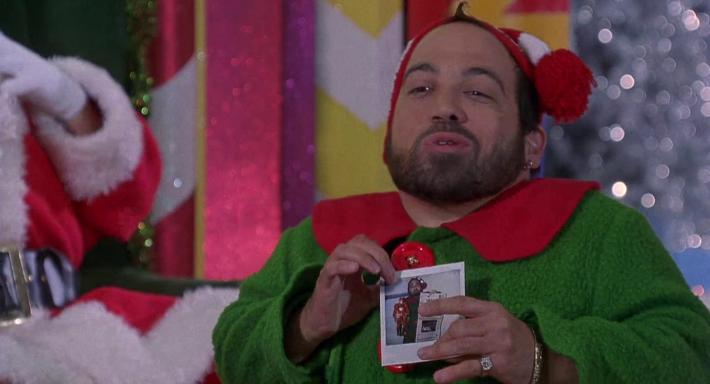
Talkin’ Arnold
By the mid-’90s, Arnold Schwarzenegger had flexed his comedic muscles with Twins (1988) and Kindergarten Cop (1990). The hulking action-hero icon—who reportedly bagged $20 million for Jingle—left a larger-than-life impression on the state of Minnesota, home to his Planet Hollywood investment inside Mall of America.
Randy Kornfield, writer: Arnold’s involvement blew it up to a bigger picture than I had anticipated. I never had him in mind. It got an instant green-light when he signed on. He was great! I always had somebody in mind like Steve Martin—a nice fatherly guy you see unravel, not the muscle man who’ll weather every situation.
Arne Carlson, former Minnesota governor: I already had somewhat of a relationship with Arnold Schwarzenegger, because we had come out previously on behalf of President Bush with his physical education program. He was a wonderful guest, I really enjoyed him. We had slug-loads of kids over, and they just loved him. I remember we had a press conference, and one of the first questions was, “Well, how much is this going to cost?” And, I’ll never forget, Schwarzenegger’s answer was, “It doesn’t cost a nickel to do a pushup.”
Randy Adamsick, former director of Minnesota Film & TV Board: On that very first day of shooting, I was in Arnold’s personal trailer with Arnold and Jesse [Ventura], and this is a true story: Arnold said, “Hey Jesse, how’s this political stuff going?” And Jesse [who had recently served as mayor of Brooklyn Park] replied, “Oh it’s great, you should try it!”
Anne Healy-Shapiro, location manager: Arnold was not a diva at all. He fell in love with [longtime waitress] Mary [Kiritschenko] at Mickey’s Diner because she would talk back to him, and nobody talks back to Arnold. She would sit on his lap and tell him dirty jokes. He would go for breakfast there, and one day she was shoveling snow off the top of Mickey’s, and he was trying to climb up there because he made her a hand-embroidered Jingle All the Way T-shirt. The lawyers were like, “Get down!!!”
Andrew Peterson, location manager: This is Arnold in 1996, kind of at the height of his action hero thing. He needed to keep his body fit, not necessarily for this movie where they played down how muscular he was. Whenever we were in a location for more than a certain amount of time, we had to drop in a gym, which was inside a trailer that required a power tie-in. Totally understood it, but that was one of the more challenging pieces. Nobody is quite like Arnold.
Sinbad, circa ’9612: Oh, Arnold's cool. He's always playing practical jokes and clowning around... it's easy to see how he used to freak out the other bodybuilders. Improv is not just coming up with a good one-liner. Anybody can do that. The key is learning how to share the comedy. You not only have to get a laugh, but you have to give the other guy something he can take and work with. Then he gets a laugh and gives you something you can take. Arnold can do that.
Luana Webster, concerned resident writing to the Strib's Op-Ed page, circa ’9613: Planet Hollywood was lagging for customers so part-owner Arnold Schwarzenegger decided to make a personal appearance and give away or sell cigars. The nerve of that man! With many young people picking up the smoking habit every day, they need help to resist, not encouragement from the Terminator. Even St. Paul Mayor Norm Coleman got pulled into his campaign to get more business for Planet Hollywood. Shame on you, Norm. There are many ways of fund-raising without using cigars. I think we should all boycott Arnold Schwarzenegger's charity Jingle All the Way he is making here. All he is doing in Minnesota is polluting our air.
Danny Woodburn, actor who played Tony the Elf: Meeting Arnold the first day, he had a dresser that he called Doonce. It was a beloved nickname; I knew they had a long relationship. The first take I saw Arnold do, he goes “Doonce!” and Doonce goes “Yo!” and Arnold goes “Candy!” And Doonce runs over, pulls out a piece of hard candy, and pops it into Arnold’s mouth right before the take. And I thought… I don’t know what’s going on here, this is the wildest thing. Later, as we were shooting, I started to develop my Arnold impression, and I got to the point where I could yell “Doonce!” and he’d think it’s Arnold calling him. So one day I said, “Arnold watch this,” and I go, “Doonce!” and Doonce turns and goes, “Yo!” Arnold thought it was so funny and had me do it again.
Brian Levant, director: Arnold was a great partner in the film, and promoted it relentlessly. Everything Arnold did, he did 1,000%. He showed up the first day and not only knew every one of his lines, but he had memorized the entire script. Everyone’s lines!
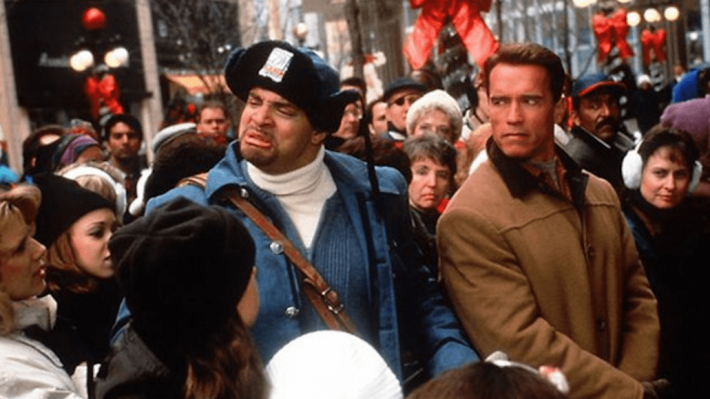
Critical Kryptonite, Box Office Late-Bloomer
Critics were not overtaken by the generous Christmas spirit when reviewing Jingle All the Way. The film has a 17% “Fresh” rating on Rotten Tomatoes and a 34/100 score at Metacritic; the Star Tribune’s Jeff Strickler, on the other hand, gave it 3.5 stars. Jingle was never intended to fascinate adult critics, though, at least at first, it fell short by the metric Fox execs cared most about: With a $12.2 million take, Jingle All the Way debuted fourth at the box office behind Star Trek: First Contact, Space Jam, and Ransom. Eventually, Jingle would gross around $120 million worldwide, so it became a money-maker for the studio. The premiere at Mall of America, which drew 20,000 locals, sounded like a jubilant affair, complete with a “Jingle Bells” singalong and appearances from most the stars.
Arnold, circa ’9614: The people of Minnesota can consider themselves partners in this project. When I left on the last day of filming, I said, “I'll be back.” We wanted to have our world premiere in this fabulous city. We saw a lot of cold days here—and a lot of people with warm hearts that we'll never forget. I've never seen so many people at one of these. In Hollywood, we get maybe 5,000. In my opinion, [MOA] was the best place to make the movie. The help we got from the people was fantastic. We were very, very happy with the location and would go back there to film anytime again.
Kathy Brathwaite, MOA premiere attendee, circa ’9615: I would have waited 12 hours. We bought hot dogs, chips, and juice boxes. We came prepared.
Randy Adamsick, former director of Minnesota Film & TV Board: The whole thing resembled a circus. It was insane.
Danny Woodburn, actor who played Tony the Elf: It was just massive, pretty phenomenal. I hadn’t known the magnitude of filmmaking from that side. I had two Seinfelds in the can at that point, but nobody knew who I was; they knew I was in the picture and that’s all that mattered.
Randy Kornfield, writer: I was concerned that it was becoming a little cartoonish. In particular, when the bomb blows up and Robert Conrad is char-faced with messed up hair—that was what I didn’t want it to be. It didn’t bother me that much, because I never meant it to be an artistic accomplishment. I always thought it was a real obvious commercial endeavour for family audiences. My script was darker and edgier initially, and they lightened it up. People who actually worked on the film, who had had the original script, agreed. It eventually made a decent amount of money, but they spent too much on it; it was always meant to be a $25 million family comedy [not a $60 million blockbuster], so I knew that was trouble.
Brian Levant, director: We tried to squeeze every bit of madness out of the material. I was always surprised that it never landed that knockout punch… except to the reindeer. I think a lot about the film's performance can be attributed to the fact that, for instance, I think Space Jam and 101 Dalmations were projects that were years in the making and planning. Their campaigns, their marketing tie-ins–everything was planned far in advance, whereas this was kind of hand-to-mouth. The previews were never overwhelming, the audience never rated as high as we would have liked. I’m never sure why… that gave a lot of doubts about things. We tried to shape the film a little more, and overdid it by cutting some things.
Roger Ebert, writing in his middling review16: I liked a lot of the movie, which is genial and has a lot of energy, but I was sort of depressed by its relentlessly materialistic view of Christmas, and by the choice to go with action and (mild) violence over dialogue and plot. Audiences will like it, I am sure, but I have to raise my hand in reluctant dissent and ask, please, sir, may we have some more goodwill among men? Even TurboMen?
Jeff Strickler, writing in his glowing review17: Jingle All the Way is the antidote to Feeling Minnesota and Fargo. The locally filmed action-comedy quickly banishes all those negative images of the Twin Cities as a place of kidnappers, murderers, rogues and thugs. Our new image couldn't be more flattering if it had been suggested by the Chamber of Commerce. People in the rest of the country may get a couple of laughs and a few smiles from this film, but in Minnesota, we also get a huge boost to our collective ego. It's hard not to let one's civic pride influence feelings about the film. While the humor is not the kind of stuff that will have viewers rolling in the aisles, Jingle All the Way has the look of a movie that's going to be a huge hit in Minnesota.
Emanuel Levy, film critic for Variety, writing in his panning review18: In this highly formulaic star vehicle, the season’s first Christmas movie, Arnold Schwarzenegger gets to fly like Peter Pan, act like Superman and fulfill the kind of fantasy many kids imagine for their fathers. Based on an idea similar to the premise of Home Alone, though not nearly as accomplished or entertaining, and produced by that film’s director, Chris Columbus, this family comedy-adventure is decidedly not a vintage Schwarzenegger kidpic on the order of Kindergarten Cop. Fox should expect solid, if not boffo, box office, with stronger results in foreign and ancillary markets.
Laying the same guilt on parents for neglecting their children as did Home Alone, Jingle All the Way reverses the 1990 blockbuster’s p.o.v. Instead of focusing on the children, scripter Randy Kornfield’s slight tale centers on the desperate efforts of a workaholic father to get his son his desired Christmas gift. End result is an erratic comedy that will frustrate children, the film’s main target audience, because the kid doesn’t get as much screen time as Dad.
Levant: Critics have never been fond of anything I’ve ever done, in television and movies. That’s because I’m someone who’s not making films for critics. I make ‘em for audiences, for families to watch together. We’ve been very successful on that front, both financially and creatively. Watching kids fall into it, and sharing their enjoyment, that was the desired effect. Fifteen to twenty years ago, when I started to teach film, the only thing anybody on campus would ask me to sign was their family’s VHS copy of Jingle All the Way that they would watch every Christmas together. What started as a sprinkle turned into a thunderstorm of affection over the years.
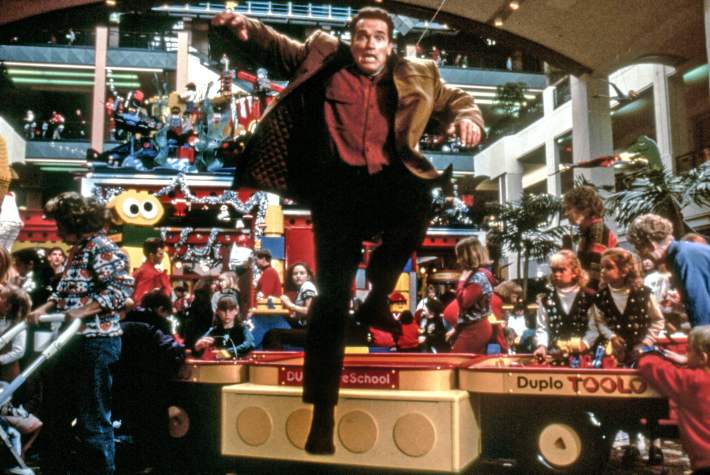
Wait… There’s a Jingle All the Way 2?
Did you know Larry the Cable Guy starred in a—very poorly received—2012 direct-to-DVD sequel to Jingle All the Way? Neither did we!
Sinbad, circa ’1719: Yeah man, that movie… it was, I guess, a straight-to-DVD, and it sucked so bad. It sucked SO bad. You gotta at least have some kind of a semblance to the original show. You can't throw a name on it… it’s like having a fake band using the real band’s name.
Brian Levant, director: I have not seen it. What I’ve read about it… I say, “Well that’s a good idea!” A guy whose kid lives with a rich stepfather, and you’re trying to compete. I haven’t seen it, I probably should… but I can barely watch my movie.
Anne Healy-Shapiro, location manager: No. There is? Shut up—why? One is enough!
Randy Kornfield, writer: I thought it was terrible, just awful. Though I thought I should get a story credit since it was basically the same premise. Not that I was proud of it, but there was money involved. [Arbitration lawyers] ruled against me; I’m not sure I wanted my name on it anyway.
Andrew Peterson, location manager: No… wait, I did hear about this! But no, I’ve not seen it.
Danny Woodburn, actor who played Tony the Elf: I haven’t seen it. I’m just remembering now that I know it exists. How strange… I think I blocked it out. There can only be one Jingle All the Way.
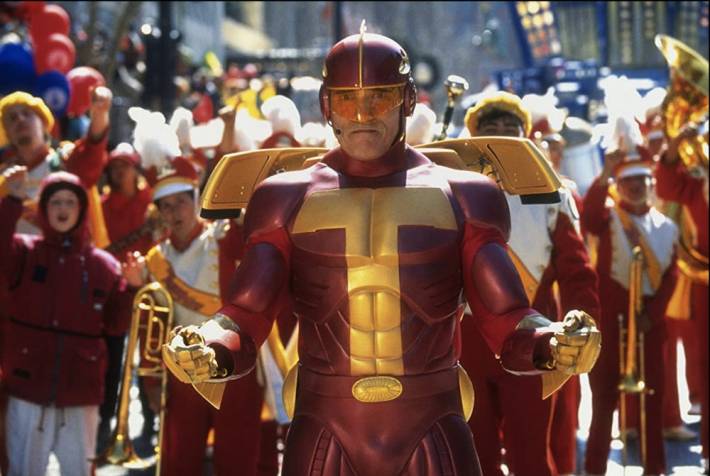
Jingle's Long, Redemptive Legacy
If you've read this far, you know what’s up: Jingle All the Way occupies a special place in your heart. Nobody will confuse lines like, “Put that cookie down. NOW!" and, "I'm not a pervert! I just was looking for a Turbo Man doll!" with Shakespeare, but that’s not the point. Jingle exists in a timeless realm of giddiness and goofiness, a deeply nostalgic era of filmmaking that’s been almost completely erased by animation. Numerous critical apologias exist online, Levant and Woodburn are attending special 25th anniversary screenings this month, and the Turbo Man action figure spurred an eBay feeding frenzy when it was reintroduced by Funko this summer. (They’re now widely, safely available for $35 at Walmart.)
Randy Kornfield, writer: I hear constant comments about how it's someone’s favorite film, they’re quoting lines and so forth. That is a lot of fun, and there’s a certain amount of pride. It shows up every Christmas on all sorts of TV channels. My older son, who I modeled Jamie after, was not so happy at first; he didn’t tell people he was Jamie for many years. It’s very nostalgic, and when you grow up with something it becomes ingrained in you.
Brian Levant, director: It destroyed my career. This was a film with great expectations; I was coming off Beethoven, which tremendously overperformed, and The Flintstones, which was a mega-blockbuster. To go into that with a genuine A-list star and a holiday release with a big studio, and to not have it perform? It was certainly a setback. When it says, “a Brian Levant film,” that’s where the fingers get pointed.
Rita Wilson, circa ’2020: This is the movie that haunts me... I know a lot of people love this movie. Why did my character not know that her husband Howard, who talks like [Arnold Schwarzenegger] and is played by Arnold Schwarzenegger, was Turbo Man. How did she not know that? Let's see: He has an accent; he looks exactly like him. He's wearing a half mask, but my character does not know. And it made me just feel like, that's just a little too stupid.
Sinbad, circa ’1721: It was fun! We had a good time doing the movie. We got a chance to do a lot of improv, so it was fun. Well, I think—first of all—[Jingle All the Way and Goodburger] were good movies. Sometimes, you just have to make a movie, and for whatever reason at that time, it just doesn’t catch on, but it was still a good movie. It’s like music; sometimes an album doesn’t sell, and all of a sudden, it catches later. You can’t worry about things like that. You do your best, you put it out there and then you push on.
Andrew Peterson, location manager: You never know what time is gonna do. I understood the critical reception at the time, but the movie wasn’t made for critics: It was family holiday escapism. When I first saw it, I was like, “Oh, it’s just OK.” But I’m a little bit of a snob.
Danny Woodburn, actor who played Tony the Elf: It’s become a holiday classic. Funnily enough, it was not a smash hit when it came out, but it’s more than made up for that over the years. It’s a bittersweet thing for [Levant] because it didn’t roll out as big as it should have. It’s one of those things about Hollywood I don’t understand. They put all this weight on one person. All of the stuff in the film is timeless. Of course Sinbad makes a reference to a very infamous Rodney King beating in the middle of the film… so that sorta takes you out of the timelessness. But the things that make it timeless are the physical comedy, the Christmas themes. I’ve done so many big-budget movies that weren't huge when they came out, but they’ve become these cult classics. It makes me feel like we did something great back then, we just didn’t know it yet.
Levant: I’m so happy that it has found a place in peoples’ hearts. About 1997 I think, I got a letter from Fox saying they were not going to bother issuing profit statements, because there weren't ever going to be any. That’s OK. It’s more important that people love it, that it means something to them. It’s become part of the nation's consciousness and a holiday tradition; I couldn’t be happier. It’s a delight to have found redemption as an artist, and for it to maintain such a high visibility a quarter of a century later. I enjoy it more than I ever did. It never turned into a blockbuster. It took time and loyalty. Today I’m very proud of it, and that wasn’t always the case. Never in my wildest dreams would I have imagined that, 25 years later, the Turbo Man would be the hottest toy in America—and it is, it’s crazy, I had to buy one on eBay for god’s sake!
1-10, 12-15, 17: Star Tribune archives
11: Sinbad's Facebook
16: RogerEbert.com
18: Variety
19, 21: Sinbad to On Milwaukee
20: Rita Wilson to Insider
